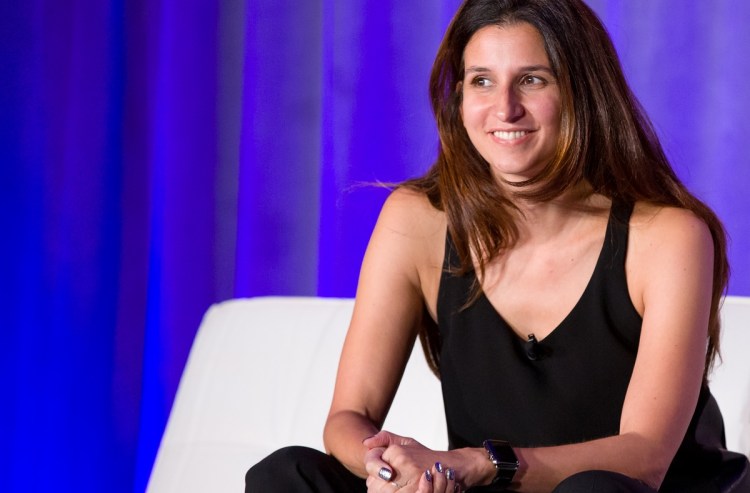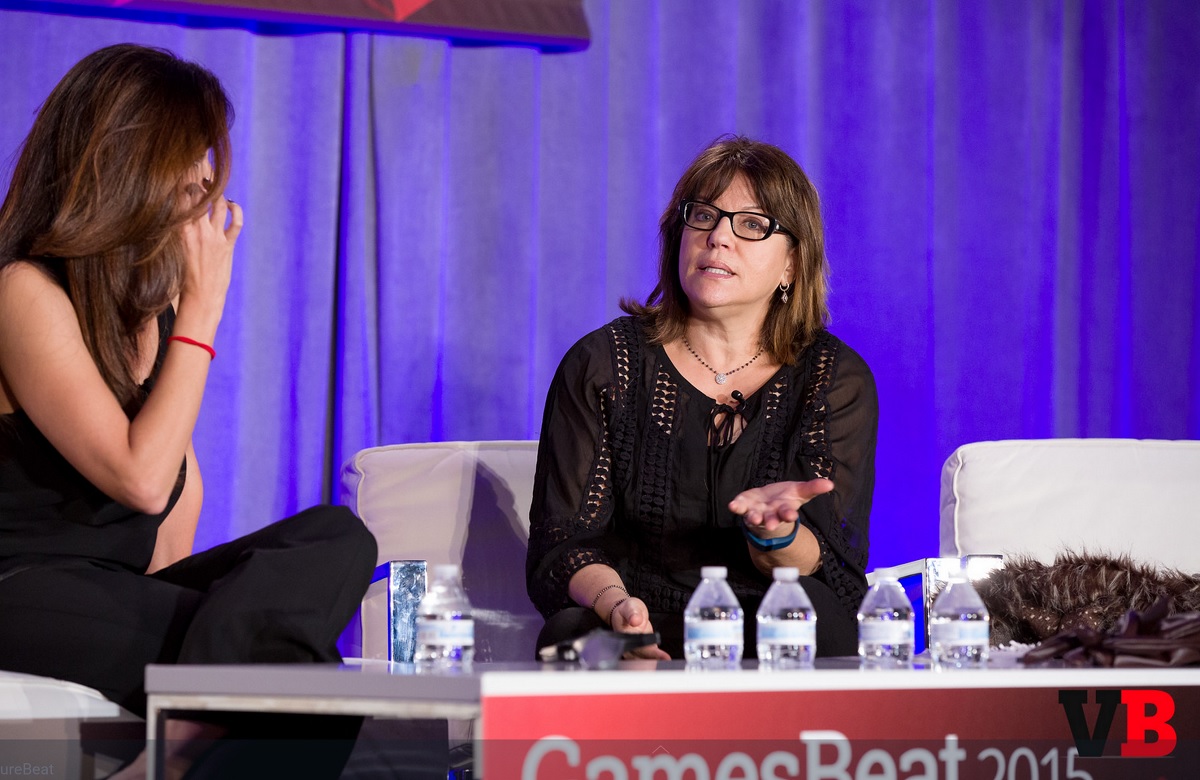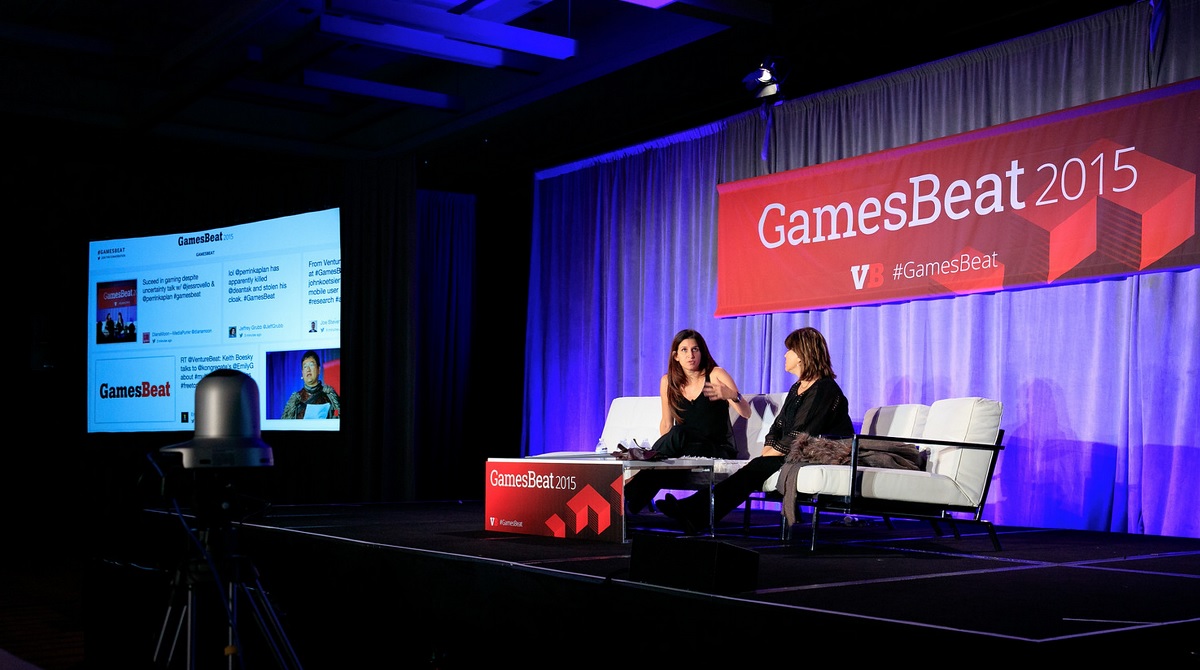GamesBeat: This was when you were having dinner. You said you went outside and thought you were going to throw up?
Rovello: Yeah. Kenny is an optimist, as I am. I think you have to be, as an entrepreneur, to survive. He said, “It’ll be fine. We haven’t read the whole thing. It won’t affect us.” I remember thinking, “I can’t sit here. I’ll be sick. I’ll faint. I don’t know.” In that moment I could feel the gravity of what was really taking place. It was 15 years of work. And outside of the work, the relationships and the people. We couldn’t pay them. We couldn’t get code in or out.
GamesBeat: And work stopped?
Rovello: Yes. Unless we wanted to run the risk of going to prison for 25 years and a $250,000 fine.
GamesBeat: What happened after that?
Rovello: There was a lot of crying. A lot of, “What the hell are we going to do?” All of this is taking place over the holidays, so everything is closed. The American government is closed. The Russian government is closed. Nobody’s working. Nobody cared. I couldn’t find articles about it. My world is imploding. This is affecting the lives of hundreds of thousands of people and I can’t find any information about it. It was surreal.
After some time we just said, “What are we going to do?” That’s when we realized it wasn’t, “What are we going to do?” It’s, “What do they want?” We started talking to our employees there. We found out that about half of them wanted to stay and figure it out, because they couldn’t leave their families. Half wanted to go. The half that wanted to go, we said, “Where do you want to go?” They said, “We’re willing to go here.” Okay, that’s where we’re going. We took 55 people and their families and over a two-week span we moved them a new country.
GamesBeat: How is it all going now? Are there two separate offices?
Rovello: No. It’s illegal for an American company to do business in Crimea. We have a studio in southern Russia now, near Sochi. It’s growing again. I’ve been there four times this year. That’s the bright side of the story. It’s amazing.
We see this refugee crisis going on around the world and I don’t want to say it’s the same, but it’s a microcosm of what’s going on. These are people who could have stayed, but then they would have been economic refugees. There’s not a lot of business to be done there anymore, not a lot of work. People are suffering. But it’s amazing to watch people have the resilience to pick up and move their lives and be away from their children or wives or husbands and somehow come out the other side.
GamesBeat: Didn’t you have this conversation with your partner, that you could just wrap up this deal and hire studio people in the U.S.? You’ve supported yourselves financially with only one round of funding recently. Some other folks would have just tied a bow on it and walked away. Did you think about that?
Rovello: We never did. It never crossed our minds that there was an option to potentially leave people behind. We were going to do whatever it took, even if it cost way too much money, to make sure that people were safe. They give us their creativity and their passion every day. I couldn’t stomach not doing everything I could to give back to them.
GamesBeat: Did it keep you up at night, thinking about it?
Rovello: When it was going on, there was drinking. It wasn’t a happy Christmas in the household.
GamesBeat: Out of that, you said that you recognized some new things that apply to most people’s businesses. Take Twisty Hollow, your popular game. You’re emotionally invested in it. It got good reviews and all that. But then it leveled off and didn’t do well. You had to decide whether you were too emotionally attached, whether you should keep sinking cash in hopes of a rise, or just move on.
Rovello: I like to think that sometimes—Rovio tells this story about how Angry Birds was their 51st game. I like to think we got to about number 47, number 48. We never got to that 51st game. If we could have kept going we probably would have gotten there. But everyone in the audience knows that mobile free-to-play is a hard business. A lot of people do a fantastic job and they’ve figured it out. A lot of people get lucky. We never entirely figured it out and we never got lucky enough.
We had some great games, some well-reviewed games, but they weren’t going to keep the lights on. When you have 100, 150 employees, that’s a big nut to cover every month.
When you really believe in something, and when it’s an artistic endeavor, there’s that little bit of addiction. That’s also what happens when you’re an entrepreneur. You have to have this ridiculously unfounded optimism, that the next one is going to be the one. If you don’t think that way you just go home. I couldn’t have survived for 15 years without that attitude.
But when you watch your entire business evaporate overnight, through no fault of your own—You look 150 people in the face and say, “We just can’t continue to do things the way we’ve been doing them. The world has literally changed around us. We can’t keep going the way we were going. We have to make some choices.”
GamesBeat: If there are any lessons for you two as partners, how to survive a business in this kind of situation, and lessons that perhaps your kids have received out of this — this is an unusual household to grow up in. What might those lessons be?
Rovello: It’s important that Kenny and I are still the majority shareholders of our business. If we hadn’t been, if we had had that pressure for an exit, the business would not still be around. It wouldn’t have been around for 15 years. We wouldn’t have dusted ourselves off when something didn’t work and tried something new. We would have Thelma and Louise’d over a cliff at some point. Part of it has to do with that.
It’s such a cliché, but the one about how what doesn’t kill you makes you stronger—We’re a different business than we were a year ago. In many ways we’re a better business, because of what happened. We walked through this fire and kept on going. It exposed some truths that we may not have seen otherwise. It exposed some things that maybe we were holding onto too tightly, that didn’t make sense. When you’re stripped down to your barest and you figure it out, it’s very revealing in many ways.
GamesBeat: You learned a lot about world politics that you didn’t know before.
Rovello: I learned more about people than I did about politics, in that—When all of this was happening—It’s been so contentious between Americans and Russians recently. More than I can remember since I was young in the ‘80s. But it never came up inside the company. We were always just trying to figure out a way to support each other. It was never, “Why did your president do this?” Politics never became part of the conversation, and thank God. We just figured out what was right for the company and how we could best support each other. We knew it was extraordinary times we were living in.
GamesBeat: Did any of your employees face the military knocking on their doors?
Rovello: Yes. I heard some scary stories. People coming and asking for identification. Tanks rolling by. Soldiers in the street. Not the kind of thing we can really envision, living here.
GamesBeat: And so sometimes it’s about the journey. Not necessarily winning.
Rovello: Absolutely. Winning is important. I’m hugely competitive. If I could have the number one game on the app store right now, if there was a way to do that, I would do it. But the philosophy behind how we run our business is that the journey is much more important than the destination. I have to love waking up and doing what I do every day, and I do. If it was based on anything other than that I would be miserable. I’m not willing to sacrifice my life to be miserable for some unattainable or hollow destination.
VentureBeat's mission is to be a digital town square for technical decision-makers to gain knowledge about transformative enterprise technology and transact. Learn More




